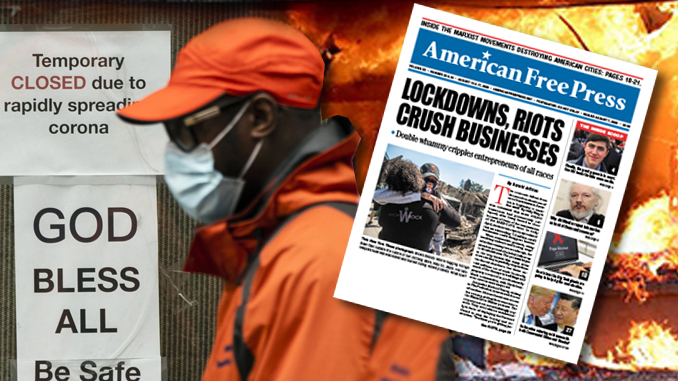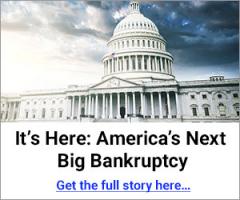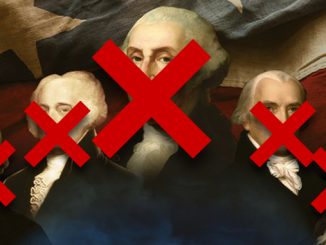
Double whammy is crippling entrepreneurs of all races.
By Donald Jeffries
The economic fallout from the senseless shutdown of most businesses in America is beginning to manifest itself. By early May, it was estimated that some 100,000 businesses had permanently collapsed, after being forced to close because of fears of the transmission of the SARS-CoV-2 virus. In early April, mainstream reports speculated that an astounding 7.5 million small businesses could disappear forever.
When nationwide protests, many involving violence and looting, erupted in this country two months ago, the situation provided a lethal follow-up to the shutdowns. The protests began at the very instant that many areas were starting to partially reopen from the forced shutdown that threw untold millions out of work. Ironically, much of the damage to buildings and property occurred in predominantly black communities, with black business owners most impacted.
Journalist Michael Tracey, writing in The Federalist, interviewed dozens of random African-Americans across the country, getting their reactions to the Black Lives Matter protests. The responses were overwhelmingly negative. They were almost unanimously in favor of deploying the National Guard to stop the looting and destruction.
“You think you’re getting jus tice, but you’re just tearing up your own community,” a black bakery owner in Milwaukee pointed out. Another black citizen in Milwaukee declared, “I really don’t understand it. Cuz they sayin’ Black Lives Matter and all this stuff, but, man, you’re hurting the black community.” In hard-hit Minneapolis, residents described how the police were nowhere to be found during the rioting and identified most of the Black Lives Matter rioters as white people. Many of the businesses desecrated by looting, graffiti, and random acts of destruction were owned by Ethiopians, Somalis, Asians or African-Americans. A business owner originally from Sierra Leone, forced to board up his doors and windows like everyone else, told Tracey, “I grew up in a war zone, and I’ve never seen anything like it.”
The economic toll from the protests cannot be fathomed. Insurance claims from ravaged businesses could easily add up to many billions of dollars. The 1992 Rodney King riots, which seem mild in comparison to the present months-long assault on cities across the country, resulted in a staggering $775 million in insurance claims, which would be some $1.4 billion in today’s dollars. In just the first weekend of rioting this year, looting costs in America’s 20 largest metropolitan areas were estimated to exceed an incredible $400 million. It is unknown how many small businesses—many of which were already clinging to life support after having been forcefully shut down by the coronavirus mandates—were pushed over the edge by rioters destroying their properties. In early June, the Congressional Budget Office informed Congress that the virus alone would cut $8 trillion from Gross Domestic Product over the next decade. Add the impact from the ongoing protests, and the financial carnage becomes unprecedented.
 The real estate industry was already struggling like the rest of the economy from businesses being forced to close, and millions becoming unemployed. Economists have found that riots going back to those that followed the 1968 assassination of Martin Luther King Jr. resulted in measurably depressed property values in those areas. Victor Matheson, professor of economics at College of the Holy Cross, described what happened after the 1992 riots in Los Angeles. “Economic activity in the areas affected didn’t return for at least 10 years. If people don’t feel safe where their businesses are, then they don’t feel a need to rebuild.” He projected some $5 billion in lost economic activity over the next 10 years.
The real estate industry was already struggling like the rest of the economy from businesses being forced to close, and millions becoming unemployed. Economists have found that riots going back to those that followed the 1968 assassination of Martin Luther King Jr. resulted in measurably depressed property values in those areas. Victor Matheson, professor of economics at College of the Holy Cross, described what happened after the 1992 riots in Los Angeles. “Economic activity in the areas affected didn’t return for at least 10 years. If people don’t feel safe where their businesses are, then they don’t feel a need to rebuild.” He projected some $5 billion in lost economic activity over the next 10 years.

Few politicians, journalists, or business leaders have questioned why small mom-and-pop type operations were forced to close their doors because of the coronavirus while large national chains like Walmart and Home Depot were allowed to continue with business as usual. The money allotted to the Small Business Administration under the stimulus package ran out in less than two weeks. Partisan bickering prevented more desperately needed funds being allotted. “Democrats are blocking additional funding for the popular Paycheck Protection Program,” President Donald Trump tweeted.“They are killing American small businesses. Stop playing politics, Dems! Support Refilling PPP NOW—it is out of funds!” Large corporations wound up getting some $1 billion supposedly earmarked for small businesses.
Although insurance companies should theoretically pay for most of the damage suffered by businesses from rioting, Rep. Ilhan Omar was planning to introduce federal relief legislation. “I am working with my colleagues to create an Emergency Relief Fund specifically for communities trying to rebuild after social and civil rights crises,” Omar declared. Minneapolis Mayor Jacob Frey asked President Trump for federal assistance, after letting his city burn when he encouraged police to stand down. Things were already bleak for small businesses before the disasters of 2020. At least half of all new businesses fail within five years. Mergers and outsourcing have given big corporations every advantage. Will any small businesses survive?
Donald Jeffries is a highly respected author and researcher whose work on the JFK, RFK and MLK assassinations and other high crimes of the Deep State has been read by millions of people across the world. Jeffries is also the author of three books currently being sold by the AFP Online Store.




